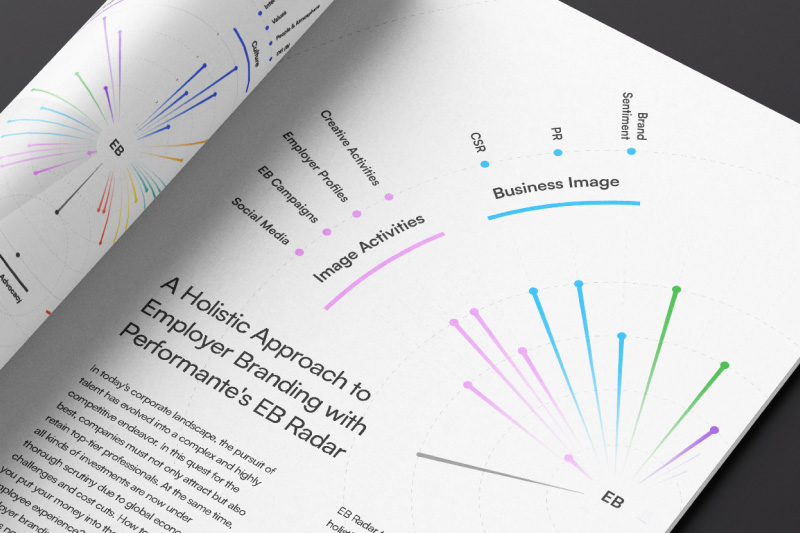„How would you rate your contact with a recruiter?”
In the era of an employee market, low unemployment rate and the war for talent, most of you probably already know what the term “candidate experience” stands for. For those who are newbies in this topic — it is an experience of the candidate that comes out after a contact with your company, e.g. after the recruitment process you coordinate ;)

The extent to which a candidate experience is a positive or negative depends on many factors, you do not always have an influence on. But how to make the best impression on the candidate, contribute to the 50% growth of your company (that’s what we did ;)) and take care of a person who is often at a difficult stage of his or her life?
In the end, we are talking about a human in different situations for various reasons, right?
In spite of rejecting the candidate, can you get a warm thanks from that person for encouraging, motivating and positive experience?
In spite of the rejection by a candidate who has decided on a different development path, can you regularly receive recommendations of his/her colleagues with relevant experience who would match your company’s culture?
YES!
If you would like to examine the candidate’s experience in your company and get inspired by other practices, I invite you to read the following case study :)
#Intro
In order to find out about the candidate experience, we used a publicly available tool, which is anonymous surveys. We carried the survey during the second half of the year 2017. Although it took us quite a long time to conduct one study, we decided to extend it, because in the meantime our team has grown and we also moved to a new office. We did not pay much attention to the comparison of the “before” and “after” results, but rather to the overall picture of candidates’ impressions.
After running only a few recruitment processes per month (at the moment we employ 55 people), we managed to obtain anonymous responses from 82 candidates, which is 37% of people who received a survey to complete, and 64% who opened the link to the questionnaire sent in an e-mail after the recruitment process. The survey was received by all people who had passed the CV selection process and had a conversation with one of our recruiters or hiring managers via phone or during the interview.
Candidates who had a meeting with us several times and made it to the last stage of the recruitment process were more involved in giving us the feedback, which is why 38.8% of all responses were from them.
In total, 76.5% of the respondents did not receive a job offer from us.
#Survey
What did we ask about? In addition to formal questions about the position that the candidate applied for, we also wanted to get information related to individual components of the whole process.
Candidates answered questions related to the quality of the job advertisement, contact with the recruiter, the transparency of the information provided by us and a general impression: the interest in the company or the will to recommend us to a friend.
Thanks to the knowledge about the position which the person applied for, we could also draw specific conclusions related to a given process. In the end, the recruitment process is not always the same — different tasks and different hiring managers appeared at different stages.
So, in total, we had 15 different positions and three recruitment stages: phone call, first meeting and the final meeting.
#Results
How nice it is to read the positive results!
The contact with the recruiter was assessed the best way (believe me, despite the fact that we have been super busy, we really tried). It was assessed at the level of > 95% regardless of the stage, position or offer.
An interesting conclusion was that the transparency of the job advertisement increased along with the recruitment stage. It showed us how important it is to remember about the exact communicating of responsibilities and requirements not only in the announcement, but also once again during the telephone conversation and later on the interview meeting.
The recruitment process itself made a good impression on candidates finishing it at all stages, but the candidates from the last stage were, of course, the most interested in the company. This results, however, considerably vary in accordance to the position level: candidates who worked strictly in the digital marketing industry rated us better. This is a vital information for us, as we are a young organization in the process of developing and shaping. Therefore, such positive opinions of people associated with our industry please us a lot!
Generally, an average percentage of candidates who had a positive experience did not drop below 77% what we are proud of, but we also know that we still have room for improvement :)
Fortunately, we also had an open question in the form, which allowed us to gather interesting and useful suggestions from our candidates. For example, a knowledge of foreign languages should be verified several times, at every stage, in different situations.
#WhySoPositive
If you are at the stage of structuring your recruitment process and looking for good (and proven) practices, I hope this part will inspire you:
-
After applying to our company, all candidates receive an automatic e-mail confirming that their CV has been delivered.
-
At the CV selection level, candidates who, for various reasons, haven’t been selected for the next stage, will receive this information by e-mail. It often includes the reason for such a decision (of course, at this stage the appropriate ATS and clearly defined requirements are very useful).
-
Candidates who made it to the next stage and will get a phone call are informed about it in advance via e-mail. As a result, they are already prepared for a conversation (if they are not, well, it also tells us something about candidate’s engagement in the recruitment process). Sure thing, we are not always able to set an appointment by e-mail, because of the numerous issues; however, this is not a frequent deviation from the norm for us.
-
Candidates are treated as interview partners — we do not ask rigid questions removed from the context. Of course, there are questions that we must ask to have a clearly defined situation for a given person. But never forget that you are talking to a person, not a chatbot.
-
Feedback: all candidates are informed about the outcome of the interview after each stage. ATS is also useful here. Unfortunately, the message will not always reach the candidate (spam, folder, accidental deletion). So, make sure to remember about it.
Are we trying to provide the candidates with the most positive experience related to our company / person / process? Definitely! We respect people and we care about their positive experience. Can we do better? For sure, you always have to work on improving yourself. It is important, however, to always remember that once we have also been (and perhaps we will be once again) a candidate. Therefore, apart from building the image of your company, let’s not forget about empathy.
And what about the recruitment process at your company? Perhaps you can also suggest some good recruitment practices? :)





